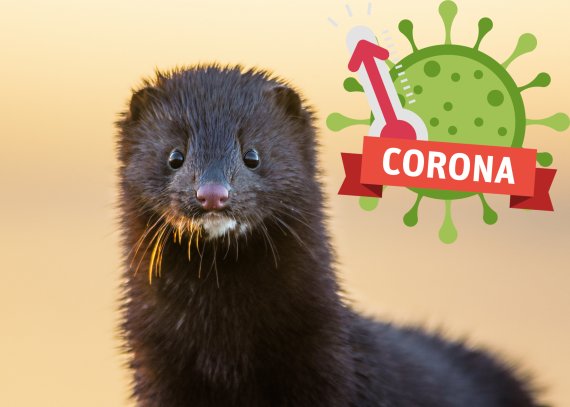Since the outbreak of the virus in the Chinese province of Wuhan, this is the world’s first known case of an animal to human infection. ‘We already suspected the coronavirus could be passed back onto humans through animals’, virologist Wim van der Poel of Wageningen Bioveterinanry research states. ‘The virus varieties in minks and humans are very similar.’ Research has now confirmed that one employee of a mink farm has probably been infected with the coronavirus that is similar to the coronavirus found on the farm. Van der Poel: ‘The genetic code of the virus in the patient is almost identical to that of the virus in the minks. This makes it highly likely that the virus has jumped from a mink to this individual.’ Comparing the genetic codes allows researchers to draw up a ‘pedigree’ and map how and when people and animals were infected.
Our main concern is that minks are a source of re-introduction of the virus
Wim van der Poel, virologist Wageningen Bioveterinary Research
The employee has since recovered, minster Carola Schouten tells the parliament in a letter. She also announced additional measures for the mink farms. All farms will now be screened to check for the presence of COVID-19. There is no need at this time for the farms to be cleared.
Fear of minks causing re-introduction
The chance of humans contracting the virus from minks is much smaller than the risk of being infected by a fellow human. Van der Poel: ‘However, we are now finally appearing to get ahead of the outbreak amongst humans, which causes concern that minks could become a source capable of re-introducing the virus in humans.’ So far, the virus appears to wane in minks as it does in humans. ‘On the first farm that was affected, the animals are recovering, and there is no secretion of the virus anymore.’
Cats and pigs
Wageningen Bioveterinary Research studies how the disease spreads among minks. Research is also conducted to see if cats on these farms are infected by the virus. So far, three cats were found to have antibodies for COVID-19 in their blood, which indicates they are or have been, infected. Further research will be done to determine to what extent cats play a part in propagating the disease. Van der Poel and his colleagues have done several studies in pigs. ‘We already know that pigs are sensitive to other coronaviruses such as SARS-1 and MERS. But repeated studies show that pigs are not sensitive to COVID-19, even when exposed to high levels of the virus.’

